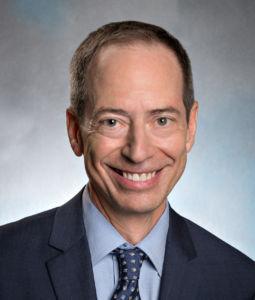El Dr. Paul Sax, director clínico de la División de Enfermedades Infecciosas y el programa VIH del Brigham and Women’s Hospital de Boston y profesor en la Harvard Medical School, nos resumirá en la última jornada de la I Reunión Virtual GeSIDA ‘Lo mejor del año’ en clínica. En esta entrevista nos avanza algunos de los temas que tratará esta tarde.
 As a preamble to your presentation this afternoon, what is the most relevant published papers on clinical HIV this year and what makes them great?
As a preamble to your presentation this afternoon, what is the most relevant published papers on clinical HIV this year and what makes them great?
I chose the major prevention and treatment trials, along with some of the best papers on issues we are all facing in clinical practice – in particular COVID-19 in people with HIV, and the controversial issue of antiretroviral therapy and weight gain.
How is the COVID-19 pandemic conditioning scientific and healthcare work in HIV?
Like every other activity, HIV-related care and research has temporarily taken a “back seat” to the COVID-19 pandemic. For example, our national HIV research network, the AIDS Clinical Trials Group (ACTG), has prioritized COVID-19 clinical trials over our HIV clinical trials, at least for now.
Can positive lessons be drawn from the pandemic and applied to other areas of our scientific and healthcare work?
One very positive lesson is how to derive the most useful data from research and apply it to patient care. Observational studies, while interesting, can be misleading due to confounding and biases that cannot all be recognized. With few exceptions, the best approach to interventions is to follow the evidence from randomized clinical trials whenever possible.
After COVID-19, will the work of health professionals be the same as we knew it until now? How will it specifically affect HIV?
It’s good to talk about an “after COVID-19”, isn’t it? We have all been humbled by this disease, and maybe a good thing about that is we will not take treatment or research for granted.
You have 28,000 followers on Twitter. Can you be considered an influencer on health issues? Is the potential of social networks being used correctly to disseminate useful and quality health knowledge? How can you combat the continuous fake news that appear on health-related issues, such as COVID-19 or the usefulness of vaccines?
Twitter (like other social media platforms), can be used for both good and bad purposes. I try to make my contributions as educational (and entertaining!) as possible. It’s also a good place to promote my writing. If exchanges on Twitter become contentious or start promoting incorrect or “fake” information, I simply ignore them. By taking this approach, I have found twitter to be a great place to learn from my colleagues, with minimal aggravation. But I understand it’s not for everyone.